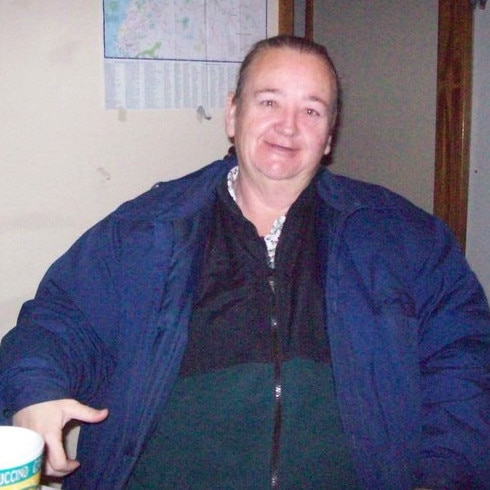How a lonely woman worked with African romance scammers: SA police reveal 230 reports in 12 months
When Dianne met Charles online he promised to marry her. He turned out to be an international scam artist. See how romance scams robbed victims of $3.9m.
SA News
Don't miss out on the headlines from SA News. Followed categories will be added to My News.
A South Australian woman thought she was going to marry a US serviceman she met online, in reality she was the target of an international romance scam.
When police untangled the web, the Paralowie woman’s involvement went beyond unwitting co-conspirator in crimes spanning multiple African countries and hundreds of thousands of dollars.
Dianne Davis first came to the attention of South Australian Police in 2016 when it was discovered suspicious amounts from her bank account were being sent overseas.
She was among numerous people police uncovered while monitoring the movement of money, many were the victims of romance scams and did not realise until officers knocked on their doors.
Despite being warned by police, Davis continued to transfer money.

It later emerged that she had begun as a victim of a romance scam. She had been approached by a person claiming to be a US serviceman named Charles who at one point promised to come to Australia and marry her if she continued to send him money.
Davis was soon helping the fictional character move other victims’ money out of Australia.
Behind Charles’s social media account and a second pretending to be his barrister, were African scam artists.
The scam was run out of multiple African nations with the tendrils of the group extending into Kenya in East Africa and the west African countries of Ghana, Sierra Leone, Benin and Nigeria.
Police were even able to identify the individual cities and towns in Nigeria where the money was being directed, including Lagos, Sapele, Nairobi and Warri.
Over the space of 16 months in 2018 and 2019 Davis sent almost $540,000 to the scammers.
She received the money largely from payments into her own account ranging from a few hundred dollars through to $50,000.
But in at least one case she met with a victim of the scam and received money in person. That victim had flown to Adelaide from interstate to hand over the money to Davis, thinking she was helping Charles.
Davis was eventually charged with and pleaded guilty to 55 counts of money laundering.
During submissions in the Adelaide Magistrates Court victim impact statements were read aloud.
One of the women said the scam had left her unable to pay for the funeral of her 14-year-old grandson who died suddenly.
“I couldn’t even afford a headstone,” she wrote.
Another victim said Davis was “evil in disguise”.
Davis was described by her barrister as easy prey for a scammer with diagnosed autism and limited personal skills.
She was convicted of the charges but spared prison.
South Australians lose millions in romance scams
Davis is not alone – romance scammers extorted at least $3.9m out of South Australians last financial year with police receiving 230 reports in the same period.
In one recent case, a romance scam victim lost $50,000 to an international con artist.
She believed she had been in a relationship with a man overseas and had sent him the money for his education.
When she travelled overseas to meet him for the first time, he never showed up and she was “emotionally broken” as a result.
The inner workings of a romance scam
With only a fake social media profile and a knowledge of human vulnerability, international criminals play on human loneliness and a desire to help others to extort money, before cutting their victim’s loose.
Often victims become criminals themselves – conned into opening up bank accounts or allowing tainted money to travel through their own accounts.
Officer in charge of Finance and Cybercrime Investigation Branch Detective Superintendent Adam Rice said online scammers often claimed to be from trusted professions like the military to ensnare their victims.
But instead, he said romance scams, like other forms of cyber crimes, were often run off shore by organised crime groups.
“The money is massive and the risk is relatively small, there is no one coming at you with machine guns from rival scams,” he said.
“These aren’t cartels, it is a low risk burn.”
Cyber Crime Investigation Detective Section Senior Sergeant Adam Serafini said that romance scams often did not stop with rorting small amounts of money from the victims.
Instead they could turn into months or years long frauds involving investments in non-existent stocks or cryptocurrencies – all based on the trust generated in the early days of the romance scam.
Sergeant Serafini said that romance scams could evolve, much like Davis’ case into the victim’s being deployed as cash mules.
“Sometimes these scammers say they are an overseas worker and can’t get access to their employment fund, so they ask the victims to set up a bank account or allow them to use their bank account to then send those funds.
“But those funds actually come from other victims.”
Romance scams have been traced back to countries including Pakistan, India, Malaysia and Nigeria – but in some cases require co-conspirators on the ground to help run the scams.
More Coverage
Originally published as How a lonely woman worked with African romance scammers: SA police reveal 230 reports in 12 months




